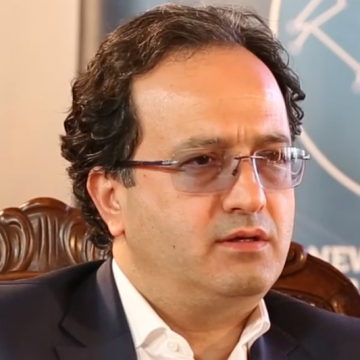Iranian President Hassan Rouhani said on Tuesday that Iran could break the JCPOA nuclear agreement if Washington imposes new sanctions against Tehran. However, Valdai Club expert Kayhan Barzegar, director of the Institute for Middle East Strategic Studies in Tehran, believes that the withdrawal from the nuclear agreement is not included in Iran’s political agenda.
President Rouhani once again confirmed this in his inaugural speech on assuming office for a second term. «Abandoning the deal is not currently Iran’s policy and this was stressed by President Rouhani in his second term inauguration speech. Yet, we should understand that the logic behind the deal for Iran was both lifting sanctions and solving a strategic stalemate at the global level and especially neutralizing the security threat posed by the U.S.,» Barzegar said in an interview with valdaiclub.com
If during the Trump’s presidency all this returns back, then the whole meaning of JCPOA will be seriously undermined in terms of Iran’s strategic interests. «The value of the deal will be under real challenge in Iran’s strategic calculus, especially in any possible cooperation with the Western countries on other areas of common interests i.e. battling terrorism, as the issue of mutual trust has become critical in Iran’s view of the West after the nuclear deal,» Barzegar added.
Speaking about the possibility of developing nuclear weapons by Iran in the event of withdrawal from JCPOA, Kayhan Barzegar said that the development of nuclear weapons cannot be considered Iran’s strategy under any circumstances. «This has strategic, security and religious logic,» Barzegar said. «Yet, one should note that the nuclear deal was struck based on a win-win situation and this is at present exactly the line with domestic legitimacy of the deal to proceed. If the U.S. side tries to sabotage the complete implementation of the deal, aiming to put pressure on Iran especially economically or politically, then no doubt the Rouhani government would have to think of finding ways to tackle it. One way for Iran could be to increase the quality and quantity of its centrifuges,» he said.
According to Barzegar, the majority of Iranians believe that Rouhani successfully fulfilled the task to regain stability in the country by resolving problems in relations with the outside world and Iran’s economic development. That is why we can say that the key words that led Rouhani at this time to victory were stability, continuation of the previous course and cooperation. «The nuclear deal was somehow the result of shifting domestic political discourse towards moderation and we should not just deduct it to economic incentives. In this sense, I would say that Rouhani’s domestic situation is strengthening and this is why Iranians have trusted him again despite all the current economic hardships,» Barzegar concluded.










